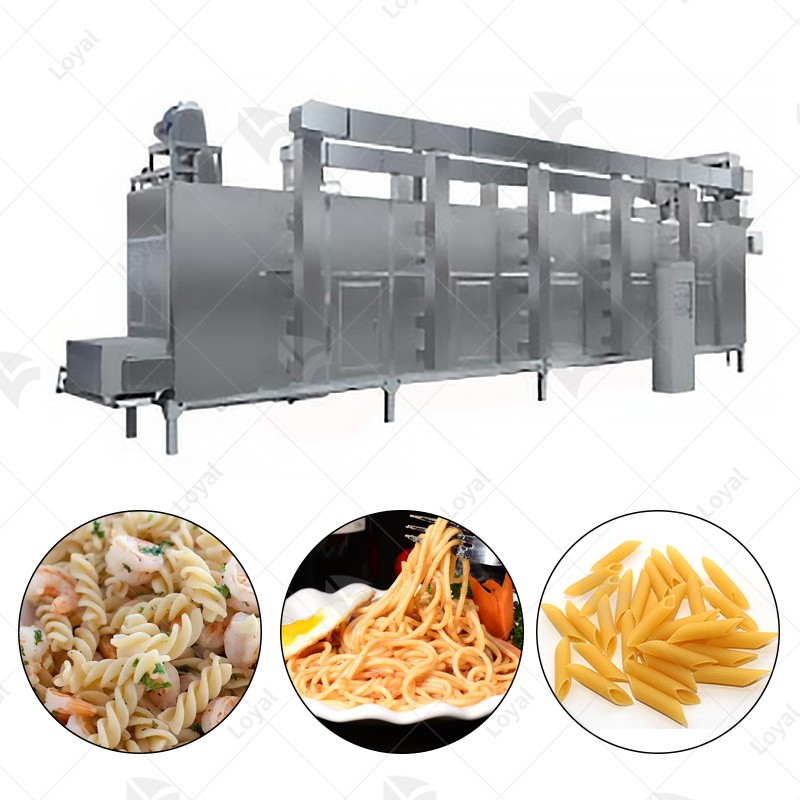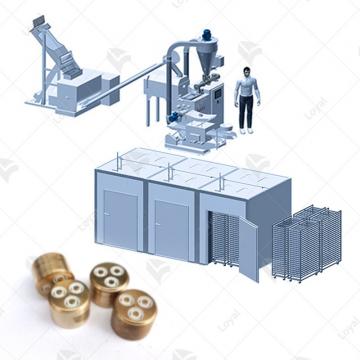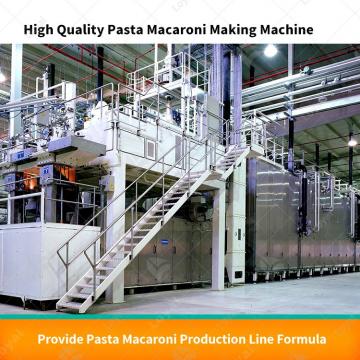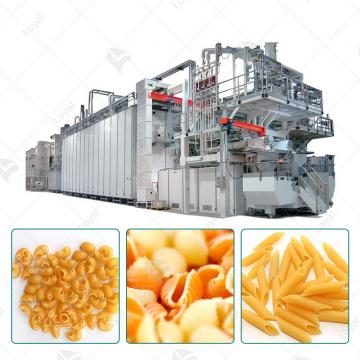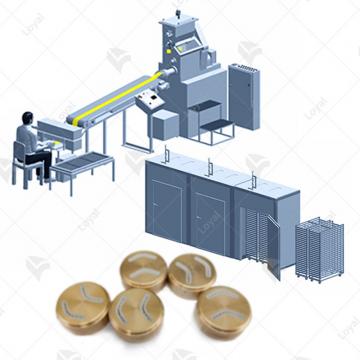Future-Proofing Macaroni Manufacturing: Full Automation and High Efficiency in Production Line
Future-Proofing Macaroni Manufacturing: Full Automation and High Efficiency in Production Line
Introduction
The landscape of macaroni manufacturing has evolved significantly over the years, adapting to the demands of an ever-changing industry. As we delve into the intricacies of Macaroni Pasta Production Line, this article aims to explore how full automation and high efficiency are pivotal in future-proofing the macaroni manufacturing process.Shandong Loyal Industrial Co., Ltd. has incorporated advanced technologies from BUHLER and BID in the production of its macaroni.
Full Automation in Macaroni Production Line
In the realm of macaroni production, full automation signifies the seamless integration of advanced machinery and smart technologies throughout the production line. This encompasses automated mixing, extrusion, drying, and packaging processes. Leading brands such as Jovial, DeLallo, Faella, and Pastificio Di Martino have embraced full automation to achieve precision and consistency in their macaroni manufacturing.
Jovial's commitment to quality is exemplified through their implementation of fully automated systems. By leveraging cutting-edge technology, Jovial ensures that each step in the macaroni production process adheres to the highest standards, resulting in a product that meets consumer expectations consistently.
The macaroni production line is witnessing continuous technological advancements that further enhance efficiency. State-of-the-art extruders, artificial intelligence-driven quality control, and robotic systems contribute to the optimization of the entire process. These advancements not only streamline production but also position manufacturers at the forefront of innovation.
Optimizing Efficiency in Macaroni Production Line
Efficiency in the macaroni production line is paramount for maintaining consistent product quality and meeting the growing demands of consumers. A streamlined process not only enhances productivity but also allows for the flexibility to adapt to market dynamics swiftly.
Efforts to optimize efficiency in macaroni production extend to energy-saving innovations. Brands like DeLallo and Faella have implemented sustainable practices, utilizing energy-efficient technologies to reduce their environmental footprint. These initiatives align with global sustainability goals and contribute to the long-term viability of the industry.

Future Trends in Macaroni Manufacturing
The future of macaroni manufacturing holds exciting prospects with emerging technologies. Robotics, enhanced automation, and data-driven insights are expected to redefine the capabilities of macaroni production lines. These innovations will not only streamline processes but also contribute to increased precision and customization.
Sustainability emerges as a key trend in the evolving landscape of macaroni production. Leading brands, including Faella and Pastificio Di Martino, are championing sustainable practices, from responsible sourcing of ingredients to eco-friendly packaging. These practices resonate with environmentally conscious consumers and contribute to the industry's resilience.
Conclusion
In conclusion, the amalgamation of full automation and high efficiency in the macaroni production line is instrumental in future-proofing the industry. Brands that prioritize innovation, sustainability, and precision are poised to lead the way, setting new standards for quality and responsible manufacturing.
FAQs: Frequently Asked Questions about Macaroni Production Line
1. What is a macaroni production line, and how does it function?
A macaroni production line is a mechanized system that encompasses various processes, including mixing, extrusion, drying, and packaging, to produce macaroni. The full automation of these processes ensures precision and efficiency.
2. How do brands like Jovial, DeLallo, Faella, and Pastificio Di Martino utilize full automation?
These brands have embraced full automation to achieve consistency and precision in macaroni production. Automated systems are utilized in mixing ingredients, extruding dough, drying macaroni, and packaging the final product.

3.What role do technological advancements play in optimizing the macaroni production process?
Technological advancements, such as advanced extruders, AI-driven quality control, and robotic systems, contribute to the optimization of the macaroni production line. These technologies enhance efficiency and ensure high-quality products.
4. Why is efficiency crucial in macaroni production?
Efficiency is vital in macaroni production to maintain consistent product quality, meet consumer demands, and stay competitive in the market. A streamlined production process allows manufacturers to adapt to changing industry dynamics.
5.How do energy-saving innovations contribute to sustainability in macaroni production?
Energy-saving innovations, implemented by brands like DeLallo and Faella, contribute to sustainability by reducing the environmental impact of macaroni production. These initiatives align with global sustainability goals and support the long-term viability of the industry.

